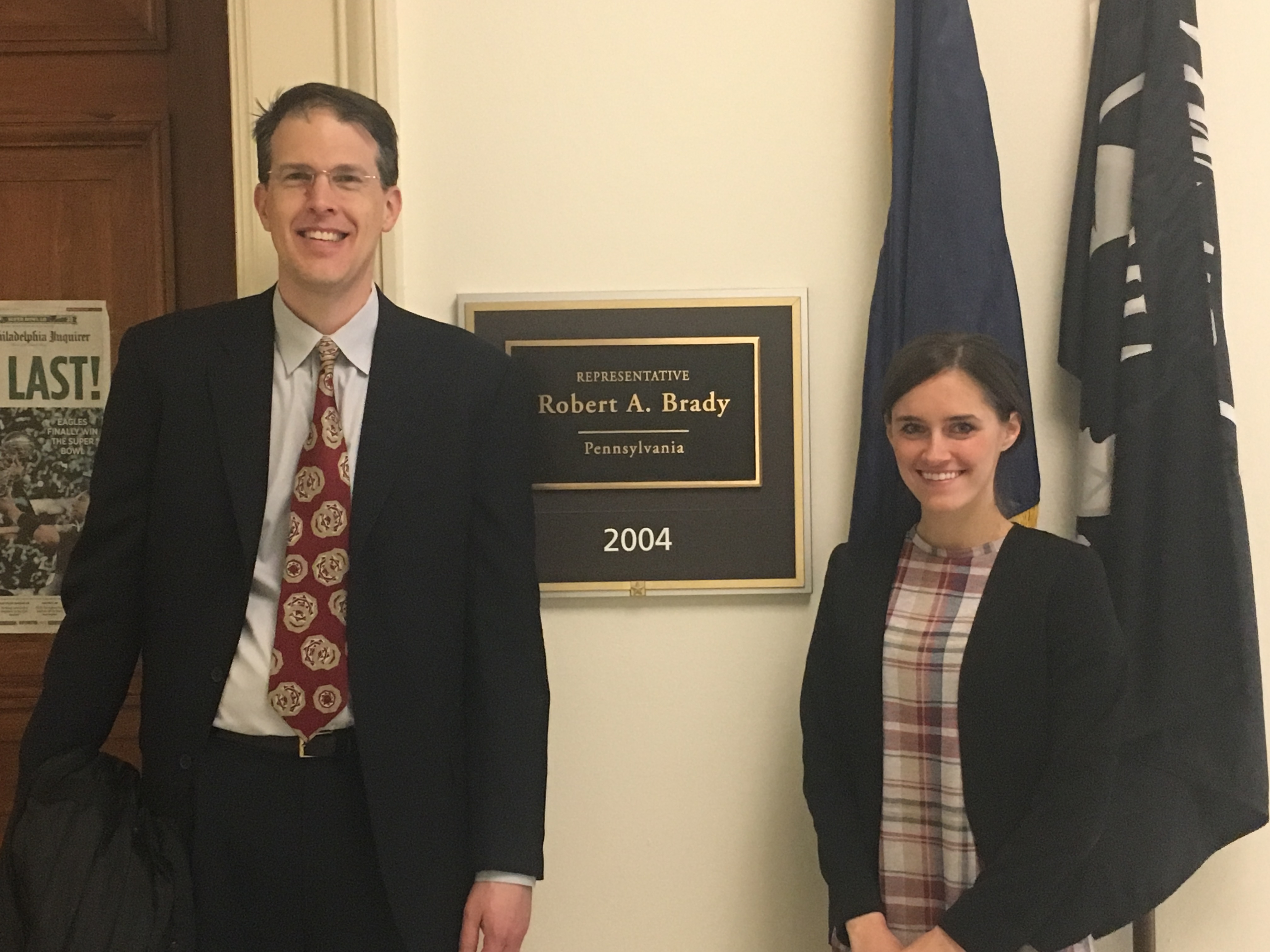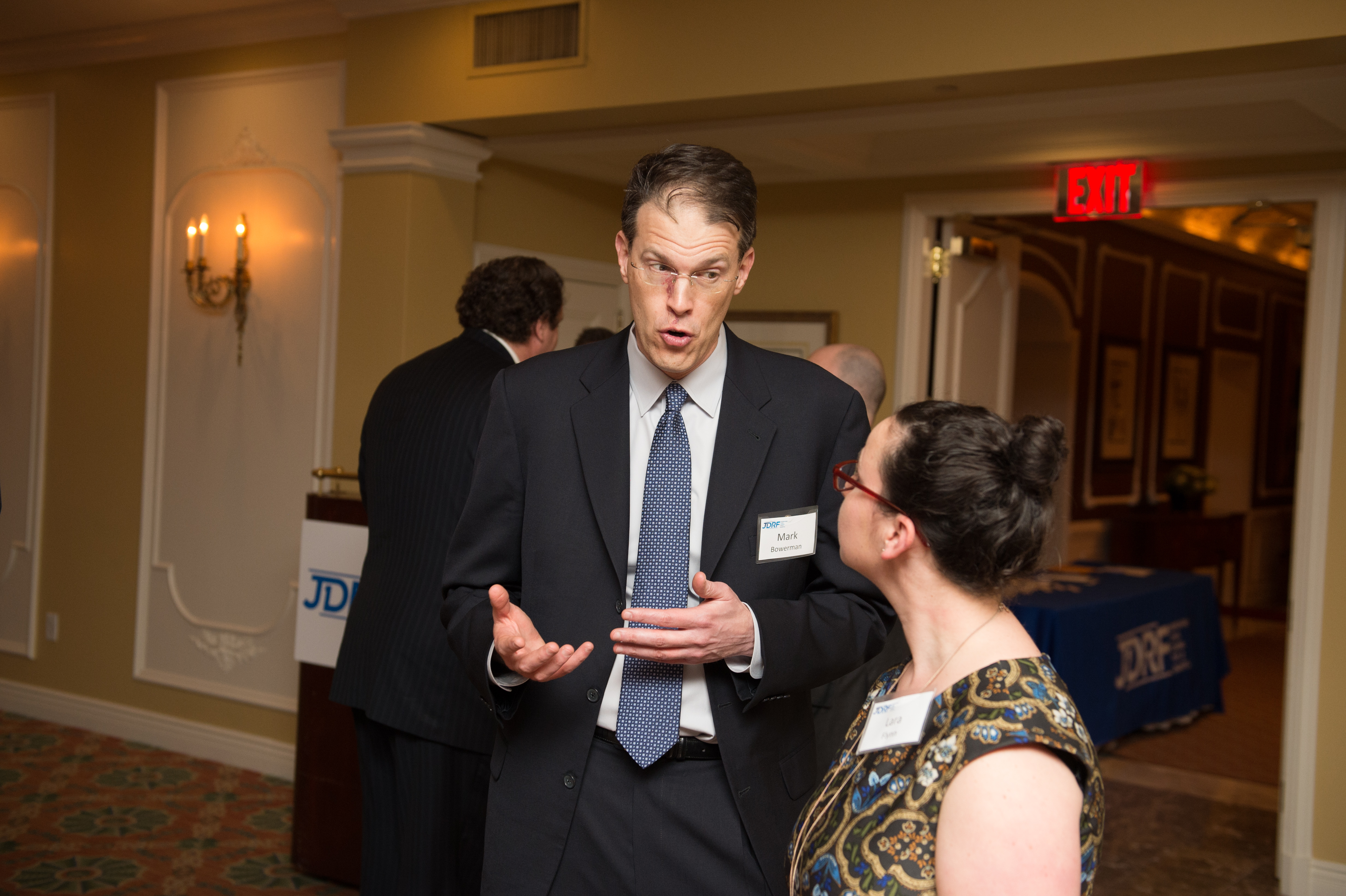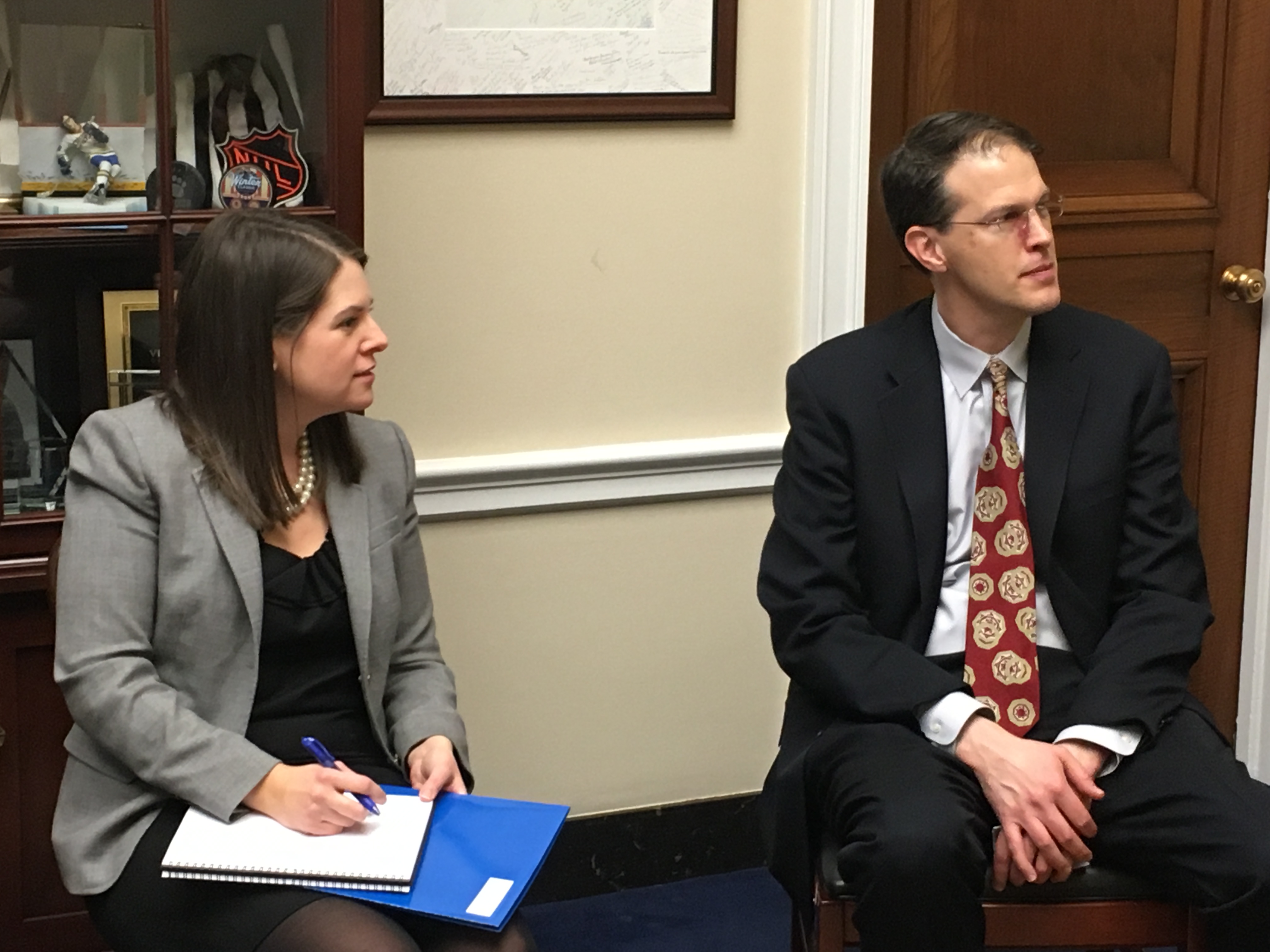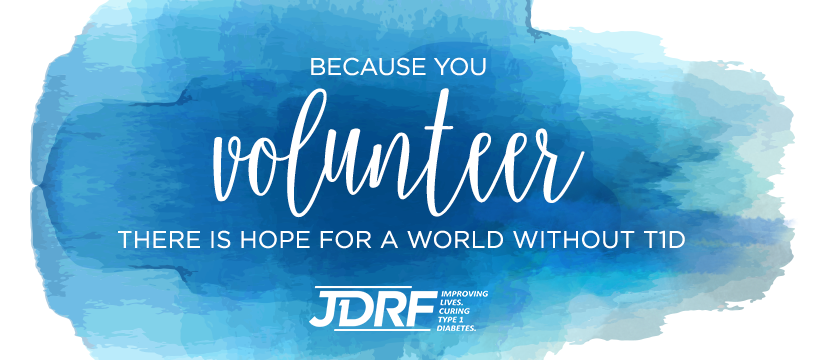Meet Mark Bowerman of the Eastern PA Volunteer Leadership Team

Happy National Volunteer Week! From April 15 to April 21, we are honoring our volunteers and all that they make possible. Today, we celebrate those who donate their leadership — our Eastern PA Board members!
_____________________________________________________________________________________

This is Mark Bowerman’s third year as a JDRF Eastern PA Board member and our Advocacy Team Chair – but he met his first type 1 diabetes (T1D) connection over two decades ago.
Professionally, Mark works for PricewaterhouseCoopers, leading efforts to manage and repurpose their information resources. As the JDRF Eastern PA chapter’s Advocacy Team Chair, Mark champions the organization’s advocacy vision, mission, goals, and priorities. He recruits and engages advocacy volunteers, leading the chapter advocacy team to ensure campaigns are successful.
Mark also provides volunteer leadership on our Board of Directors, playing a vital role in ensuring the chapter – and, in turn, the organization – achieves its goals to meet JDRF’s mission-related funding priorities.
Read below to find out what JDRF advocacy and chapter leadership mean to Mark and his family.
What is your T1D connection? Tell us about your loved ones living with T1D.
She’s tougher than T1D.
I met my first connection nearly 25 years ago. My wife, Hilary Bonta, was diagnosed when she was 20 years old. Like me, a native of the Baltimore suburbs, her early adulthood was characterized by intensive experiences abroad. She lived in Germany for a year between high school and college, went back to work in Germany over the summer after freshman year, did a junior semester abroad in Kenya, then taught English in what was then Czechoslovakia after college. The last of those experiences was done after her diagnosis – meaning that she was a recently diagnosed young adult diabetic living as a visitor in a country (the first American to visit her village) that was going through tremendous social, economic, and political change. So, yeah, she’s tougher than T1D.
After we got married and started our life together, she gained tighter control over T1D management. We moved to Philly. She got her masters in educational linguistics. We bought a house. She got an insulin pump. Then we started our family. The American dream.
Honestly, because she managed T1D so well, it bled into the background at times – just something that was there and that she dealt with. Then, our older son, Lucas, was diagnosed in 2011 at the age of nine. It was such a mix of emotions. We truly knew and understood the challenges he was in for and the worry that would also be with us. But we also knew how fortunate he was to have an experienced guide and mentor in my wife. Changes to our family’s routines would be far less drastic than for a family previously untouched by T1D.
Lucas has adapted very well, on the whole. The biggest obstacle is that Lucas inherited his dad’s fear of needles. An excellent course of exposure therapy has largely freed him from that constraint. We got him onto a pump as soon as possible, given Hilary’s proficiency with it. As a high schooler, T1D doesn’t limit Lucas. He competes in fencing at a national level and is aspiring to do the same with debate. We worry about sending him away for college, of course, and hope that the next few years will bring advancements that ease our minds.
Share a little a bit about your experience as Advocacy Team Chair.
My hope is that by the end of my term, our network for advocacy is broadened and strengthened.
For 20 years, the federal government has played a critical role in funding research to manage, cure and ultimately prevent T1D. The Special Diabetes Program allocates $150 million of government spending each year – that’s roughly 50 percent more than all of our fundraising efforts across the U.S. collectively. But the catch is, we have to continually work to get funding renewed, which requires us to advocate relentlessly to our Members of Congress.
I was recruited into the role of Advocacy leader by my predecessor, Rosemary Fuller. I was innocently attending the CHOP Living with Diabetes Conference when I dropped into her session, asked her a few questions over the course of it, and found myself hooked. I love the intersection of politics and policy; it was an easy sell.
The Eastern PA chapter has been a leading light for JDRF Advocacy for many years, beginning decades ago with the idea of busing constituents down from the Philadelphia area to Washington D.C. on Government Day. Rosemary distinguished herself in the role, a great voice for all of us who have T1D in our lives. My overriding goal has been to not mess it up!
There are three main parts to the role:
- The routine touch points we have with our Members of Congress – Government Day, where we bring 40+ constituents to D.C. to meet with officials or key staff members; Promise to Remember Me, when we meet with the Member in his home district; and Children’s Congress, a biannual event spotlighting the advocacy of one select youth member of our community;
- Action alerts – getting as many of our advocates to take action immediately to affect the course of legislation before Congress—it took hundreds of calls and e-mails from our advocates to eventually gain a two-year renewal of the Special Diabetes Program in February; and
- Recruitment and integration – building our base of advocates and building advocacy into everything JDRF does in Eastern PA.

I’m about half-way through my term. The toughest part of the role is that the Advocacy leader represents JDRF officially and must be political neutral in public statements – not just because we want to curry favor with all politicians but also to enable JDRF to maintain its non-profit status. This doesn’t mean that I don’t act on the full breadth of my beliefs in the voting booth. But it does mean that I need to be scrupulously careful about what I say or do on social media and in other forums.
My hope is that by the end of my term, our network for advocacy is broadened and strengthened. We are introducing this year the role of District Captain – individuals or teams who will provide greater engagement at the most local level, focusing on building relationships with their Congressional district’s representative. Be on the lookout for more details!
Who did you meet with on Government Day? Tell us your experience.
If [our Representatives] hear from 300 or 3,000 of us, they will yield to our demands… We can never forget that they were elected to represent our needs – and our urgent need is a cure for T1D.
Face-to-face meetings with Members of Congress or staff members is, for me, an exciting part of our work in advocacy. There’s a sense of power that comes in educating our representatives in government, in helping them understand the very real problems that people are experiencing, and enlisting their support to solve those problems over time.

Government Day involves extra time to organize and stage effectively, and is one big adrenaline rush of a day. This year, I ran six meetings in less than five hours, several of them back-to-back. I love walking (quickly) through the halls of the Congressional office buildings, seeing other advocates and lobbyists – not just from JDRF but many other causes as well, and knowing that the democratic process (with all of its messiness) can at its best result in truly good, smart, ultimately life-saving actions being taken.
Why do you think it is important for others to become advocates for T1D research?
First, the stakes are enormous. The government is the single greatest source of funding for T1D research in the US. We have to keep this investment coming, with no interruption to the science being conducted.
Second, our voices are so powerful when we raise them together. Our Representatives – rightly – respond to constituent pressure. If they hear from one or two of us, it’s easy to ignore. If they hear from 10 of us, they’ll take note. If they hear from 300 or 3,000 of us, they will yield to our demands. We always engage with our Representatives with the utmost respect. We’re mindful that we are building long-lasting relationships. But we can never forget that they were elected to represent our needs – and our urgent need is a cure for T1D.
_____________________________________________________________________________________
When we speak with One Voice, the impact is enormous. Register to become an advocate – or text “ACT” to 53731 – to help secure legislative support for research, influence sound policy making, and improve the quality of life for all those affected by T1D.
